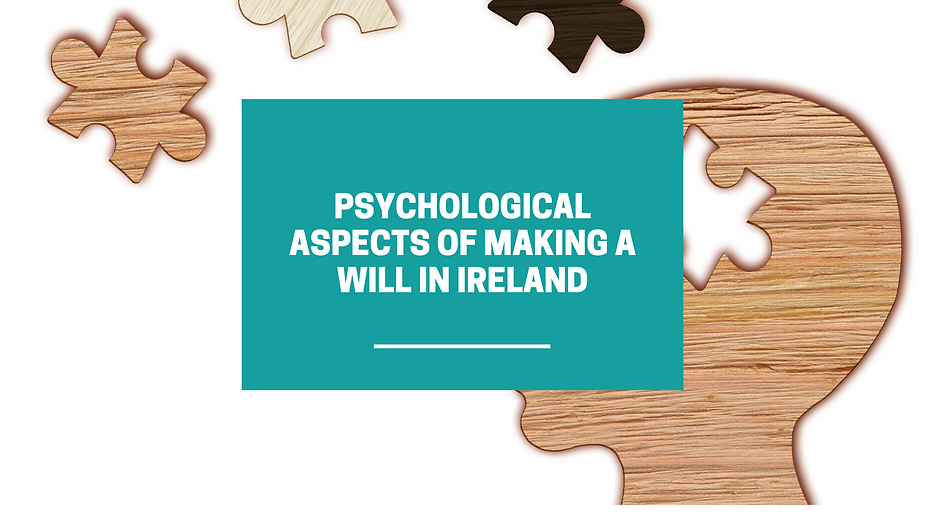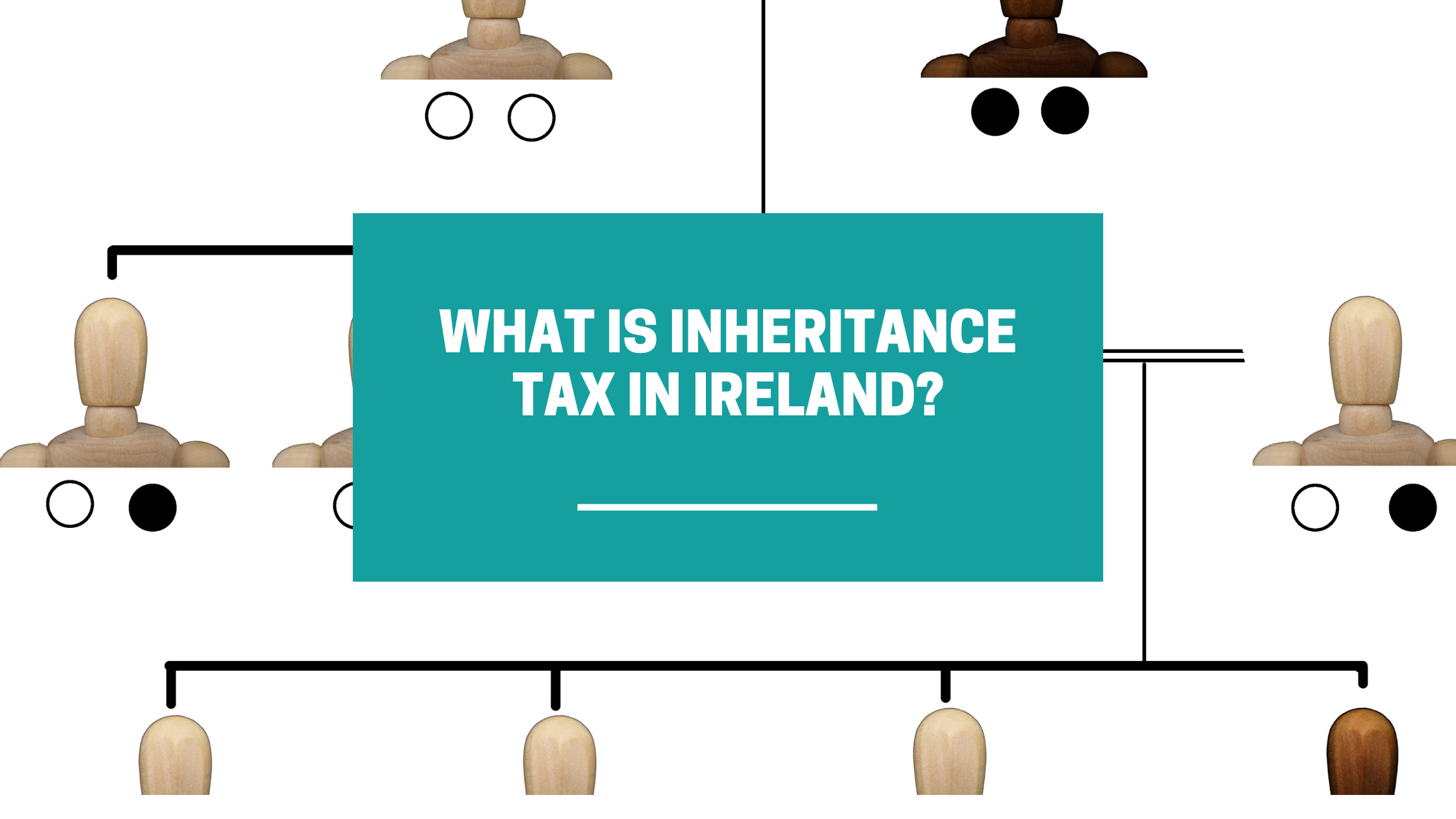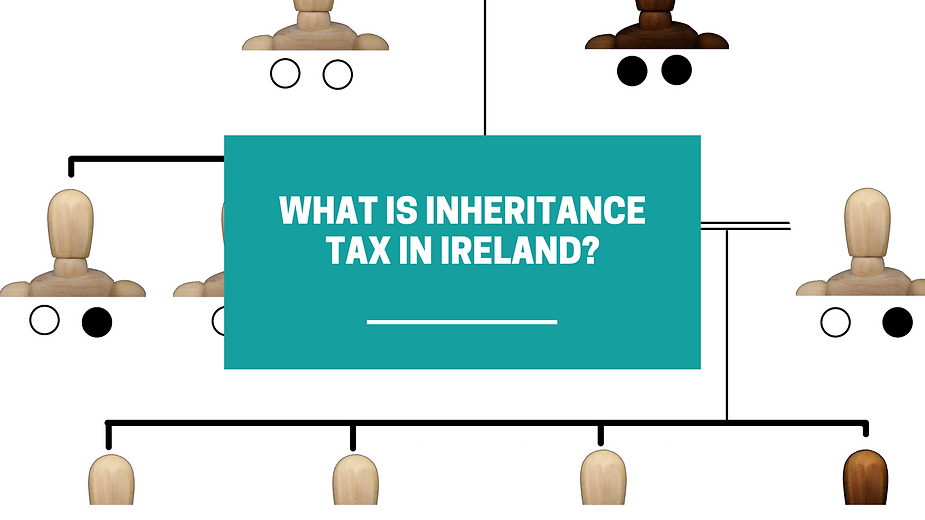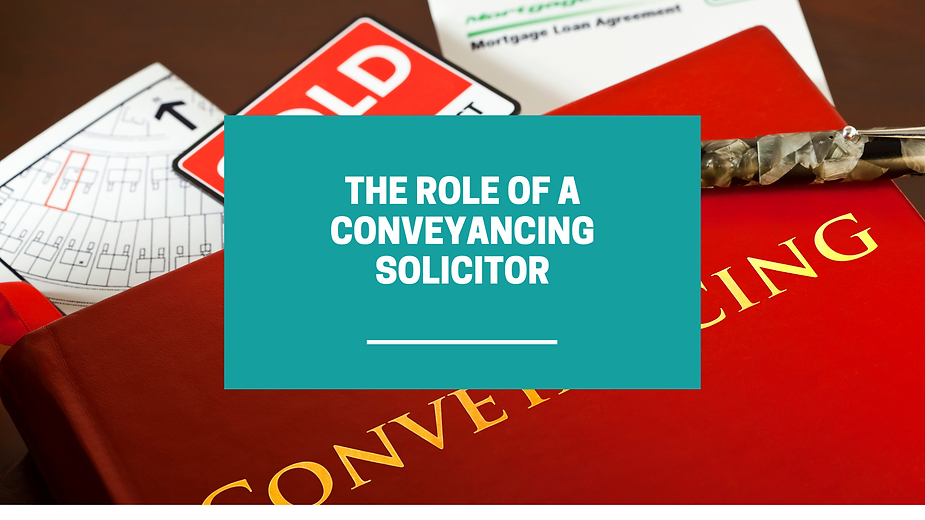The role of a conveyancing solicitor when you buy property in Ireland
Buying a property can be one of the most significant purchases you make in your lifetime, and it’s important to ensure that everything goes smoothly. From a property law perspective, one of the key professionals involved in the process of buying a property in Ireland is a conveyancing solicitor. In this blog post, we will discuss the role of a conveyancing solicitor in buying property in Ireland. What is conveyancing? Conveyancing is the legal process of transferring ownership of property from one person to another. This process involves a series of steps, including obtaining necessary documentation, conducting searches, and negotiating contracts. Conveyancing can be a complex process, and it’s important to have a solicitor with experience and expertise to guide you through it. Role of a conveyancing solicitor A conveyancing solicitor plays an important role in the purchase of a property. They are responsible for ensuring that the legalities of the sale are handled correctly, and that you are fully aware of your legal rights and obligations throughout the process. Some of the key roles of a conveyancing solicitor include: 1. Drafting contracts One of the primary roles of a conveyancing solicitor is to draft the contract for sale. This is a legally binding document that outlines the terms of the sale, including the purchase price, the closing date, and any conditions that must be met before the sale can be finalised. The solicitor will work with the seller’s solicitor to ensure that the contract is fair and balanced, and that all parties understand their obligations. 2. Conducting searches Before you purchase a property, it’s important to conduct various searches to ensure that there are no legal or financial issues that could impact your ownership of the property. A conveyancing solicitor will conduct these searches on your behalf, including title searches, planning searches, and environmental searches. These searches help to identify any issues that may need to be addressed before the sale can be completed. 3. Advising on legal issues Buying a property involves a range of legal issues, from understanding your rights as a buyer to ensuring that you comply with all relevant laws and regulations. A conveyancing solicitor will provide advice and guidance on these legal issues, including zoning and planning regulations, property taxes, and stamp duty. They will also ensure that all necessary legal documentation is in place, such as deeds, mortgage agreements, and transfer documents. 4. Facilitating the transfer of funds The purchase of a property involves a significant amount of money changing hands. A conveyancing solicitor will facilitate the transfer of funds between the buyer and seller, ensuring that all payments are made in a timely and secure manner. They will also ensure that any outstanding debts or charges on the property are settled before the sale is completed. 5. Representing your interests Throughout the process of buying a property, your conveyancing solicitor will represent your interests and ensure that your rights are protected. They will negotiate with the seller’s solicitor on your behalf, ensuring that you get the best possible deal. They will also advise you on any issues that may arise during the process and ensure that you are fully informed about all aspects of the purchase. Choosing a conveyancing solicitor in Dublin Choosing the right conveyancing solicitor is essential to ensuring a smooth and successful property purchase. Three factors to consider when selecting a conveyancing solicitor: Experience: Look for a solicitor with experience in property law and conveyancing. They should have a good understanding of the legal and regulatory issues involved in buying property in Ireland. Reputation: Check the solicitor’s reputation online, and look for reviews or testimonials from past clients. You can also ask for referrals from friends or family members who have recently purchased property. Fees: Conveyancing fees can vary significantly between solicitors. Make sure that you understand the fee Conveyancing solicitors have expert knowledge of property law in Ireland. They can provide valuable legal advice to buyers and ensure that all legal requirements are met during the conveyancing process. Perhaps best of all, your conveyancing solicitor will reduce the risk of legal issues arising during the sale. This means you can enjoy the process of buying your new home with far less stress and way more happy anticipation. Our firm specialises in property law. Please Lisa McKenna at lisa@mckennaandcosolicitors.com or 01 4854563 for a no obligation chat if you’re planning on buying a property. We’d be delighted to help!
The “Without Prejudice” to Everything Podcast is out now.

Click the link below to listen on Spotify: Introduction:McKenna and Co have recently published its very own podcast called the “Without Prejudice” to Everything Podcast, which is available on Spotify, Amazon music, Google podcasts, Samsung podcasts and many more. We have decided to go out of our comfort zone and make this podcast because in the vast landscape of podcasts, there are few that manage to captivate their audience with a unique blend of informative discussions and engaging storytelling. “Without Prejudice” to Everything is one such podcast that delves into the realms of mansplaining and property advice. Hosted by McKenna and Co’s very own Lisa McKenna, this podcast offers a fresh perspective on these intriguing topics, leaving listeners both educated and entertained. With help from Co-host Racheal McCormack, our first episode goes through some top five tips on selling a house and then moves onto a more controversial topic with them telling stories about their own mansplaining experiences. With the knowledgeable approach of Lisa and Racheal, it allows them to navigate the intricate world of mansplaining and property advice, providing a platform for meaningful conversations that resonate with a wide audience. A Thoughtful Exploration of Mansplaining: One of the cores focuses of “Without Prejudice” to Everything is the exploration of mansplaining, a phenomenon where men condescendingly explain things to women, disregarding their knowledge and expertise. Lisa takes this important issue and sheds light on its impact on individuals and society at large. Through enlightening discussions and personal stories, the podcast aims to raise awareness, challenge stereotypes, and promote gender equality. Lisa expertly navigates the complexities of mansplaining, inviting new guests every week to share their experiences and insights. These conversations serve as a valuable resource for listeners, offering a deeper understanding of the issue while encouraging empathy and inclusivity. Insightful Property Advice: Aside from its exploration of mansplaining, “Without Prejudice” to Everything also provides invaluable property advice. Real estate can be a daunting and intricate world, but Lisa and Rachael break down the complexities, making it accessible to everyone. From buying and selling property to understanding the legal aspects and financial implications, the podcast covers a wide range of topics, catering to both experienced investors and newcomers. Lisa and co-host Rachael’s expertise shines through as she guides listeners through the intricacies of the property market. Her ability to convey complex information in an approachable and relatable manner makes the podcast an invaluable resource for those seeking guidance in the world of real estate. The Host, Lisa McKenna: The driving force behind “Without Prejudice” to Everything is the host, Lisa McKenna. With a wealth of experience in property investment, Lisa is the perfect person to helm a podcast exploring mansplaining and property advice. Her passion for empowering individuals, dismantling stereotypes, and providing valuable insights is evident. Her co-host Rachael McCormack also gives invaluable expertise and insights into property law. The Impact: Our aim with the “Without Prejudice” to Everything podcast is to leave a lasting impact on our listeners. By addressing mansplaining and property advice, the podcast challenges societal norms and encourages equality and inclusivity. It offers a platform for marginalized voices, amplifying their experiences and perspectives. The combination of engaging storytelling and valuable advice creates an immersive listening experience that will hopefully keep audiences coming back for more. Conclusion: “Without Prejudice” to Everything is a podcast that brilliantly merges the realms of mansplaining and property advice. Through the expertise of host Lisa McKenna, the podcast provides a space for meaningful conversations, raising awareness about important issues while offering practical guidance to listeners. By listening to this captivating podcast, one can gain valuable insights, challenge preconceptions, and empower themselves with knowledge. Whether you are seeking to understand and combat the phenomenon of mansplaining or looking for sound advice in the realm of property, “Without Prejudice” to Everything is a podcast that deserves a spot in your playlist. Join Lisa McKenna and co-host for this week Rachael McCormack on this enlightening journey, and be prepared to be entertained, educated, inspired and help us change the world for the better.
Supporting Erin go Bragh GAA team

In our fast-paced modern world, it is more important than ever to support and cherish the traditions that bind our communities together. One such tradition that holds immense cultural significance in Ireland is its local GAA clubs. By actively supporting our local GAA club, we not only preserve our rich heritage but also contribute to the overall well-being and unity of our community. Mckenna & Co. Solicitors has the privilege of sponsoring a small GAA club in Dublin 15 called Erin go Bragh. They have teams from nursery level right up to adult, and cater for boys and girls. Jennifer Daly is the club registrar and executive committee member. The club is growing year on year and the girl’s section in particular is seeing a big increase in players. The team we are sponsoring are currently at u13 level.They started this team back in 2018 with only 7 girls and now have a squad of 38 girls and two full teams. This is the biggest group of juvenile girls an Erin go Bragh team has ever had at a single age level. Which is such a big achievement. All of the girls play both Ladies Gaelic Football and Camogie. Both teams were very successful in the league this year, with both finishing top of their respective tables.They are having a short break now for July and will get back training in August for the championship. The majority of the girls have just finished 6th class and are preparing to start secondary school in September. The next couple of years will be a tricky time to navigate and statistics show that many teenage girls drop out of sport. The team are so lucky are to have a great group of coaches, Anthony Watson, Jennifer Watson, Niall O’Hara, Paul Noonan and Sean Vickers. The coaches were also helped by this seasons two amazing captains Éabha Shiels and Molly O’Neill. We of course cannot forget about the supportive parents who are all committed to keeping every single girl playing. It is so important for their emotional, social and physical well being. Without even realising it, they are developing important life skills that they will use throughout their adult lives. They are a fantastic group of young ladies. Brave, strong, loyal, committed, always respectful and fair. They have always performed exceptionally well, both on and off the pitch, they are a credit to the club. They all look fantastic in their new gear. We are so happy that Mckenna & Co could help them finally look the part too. They have their matching training tops, which they wear during the week for training and around the community with pride. Games are played Sundays, and McKenna & Co. Solicitors will be prominently displayed across the front of their jerseys every week as they travel all over Dublin, proudly representing their club, community, and their families. We are so grateful to be able to support such a wonderful club and hope to be able to come and watch one of the games later on in the year. Supporting our local GAA club is an act that goes beyond attending matches or making financial contributions. It is an investment in our community, our culture, and our future. By embracing Irish traditions, fostering community spirit, nurturing youth development, promoting active lifestyles, and boosting the local economy, we create a thriving and unified environment for all. Let us wholeheartedly support our local GAA club and take pride in the deep-rooted traditions that bind us together as a community.
The Psychological Aspects of Making a Will in Ireland: Ensuring Peace of Mind

Introduction In Ireland, making a will is not a legal process but also an emotionally significant undertaking. It involves considering one’s mortality, making decisions about assets and loved ones, and facing potential conflicts among family members. Understanding the psychological aspects surrounding the creation of a will is essential to ensure peace of mind, promote familial harmony, and protect the wishes of the testator. This blog delves into various psychological factors involved in making a will in Ireland and offers insights into how individuals can navigate these complexities. 1.Mortality and Facing One’s Own Legacy Creating a will requires individuals to confront their own mortality. Acknowledging the inevitability of death can evoke strong emotions, such as fear, anxiety, and even existential contemplation. However, embracing this process can also lead to a sense of empowerment and provide an opportunity for individuals to leave a meaningful legacy behind. Recognizing that a will serves as a tangible expression of one’s values, beliefs, and desires can help alleviate the emotional burden associated with contemplating one’s mortality. 2.Decision-Making and Clarity on Intent. When drafting a will, individuals must make important decisions regarding the distribution of their assets, appointment of guardians for minor children, and even healthcare directives. These decisions can be complex and emotionally challenging. It is crucial to approach the decision-making process with a clear mind, carefully considering the implications of each choice. Seeking legal advice from a professional can provide guidance and clarity, ensuring that one’s intentions are accurately reflected in the will. 3.Family Dynamics and Potential Conflicts Family dynamics often play a significant role in the creation of a will. In Ireland, where strong family ties are common, potential conflicts can arise when it comes to dividing assets among beneficiaries. The expectation of fair treatment, concerns about favouritism, or differing interpretations of the testator’s intentions can create emotional turmoil and strain family relationships. Open and honest communication with loved ones during the estate planning process can help address these concerns and minimize he likelihood of disputes after one’s passing. 4.Emotional Considerations and Inter-generational Equity One aspect often overlooked during the will-making process is the emotional impact on beneficiaries. Unequal distribution of assets can create feelings of resentment, jealousy, or hurt among family members. Balancing the desire to treat loved ones fairly with the individual circumstances in needs of each beneficiary is essential. Communicating the reasons behind specific decisions, seeking professional advice, and considering inter-generational equity can help reduce potential emotional distress and promote harmony among family members. 5.Updating and Reviewing the Will Life is dynamic, and circumstances change overtime. Regularly reviewing and updating a will is essential to reflect any significant life events, such as births, deaths, marriages, or divorces. Failing to update a will can lead to unintended consequences, including disputes and legal challenges. Regularly reviewing and revising one’s will ensure that it remains an accurate reflection of the testator’s wishes, reducing potential emotional and legal complications. Conclusion Making a will in Ireland is not just a legal process but also a deeply psychological one. It involves contemplating mortality, making difficult decisions, and navigating complex family dynamics. By understanding and addressing the psychological aspects involves, individuals can ensure peace of mind, protect their wishes, and promote harmony among their loved ones. Seeking professional advice, maintaining open communication, and regularly reviewing the will are essential steps in creating a comprehensive testament hat reflects one’s values and intentions. Through thoughtful consideration, individuals can leave a lasting legacy and provide comfort and clarity to those they leave behind. If you have any queries on the Will drafting you can contact our Will and probate Department on 01-4854563 or lisa@mckennaandcosolicitors.com
Navigating the Winds of Change: Irish House Prices in 2023

As we pass the halfway mark of 2023, the Irish housing market finds itself amidst a mix of tailwinds and headwinds. The first quarter of the year witnessed a 0.3% decline in asking prices,driven by changes in the capital city. Dublin experienced a sharper fall compared to the rest of the country of 0.8%. The rest of Ireland saw a marginal rise of 0.2%. This adjustment in prices is attributed to the cooling off of frothy valuations that accumulated during the pandemic. Furthermore, the Central Statistics Office’s Residential Property Price Index (RPPI) indicates a continued decline in transaction prices, particularly in Dublin. In this article, we will explore the factors shaping the Irish housing market in 2023, both positive and challenging. Vulnerable Valuations and Price Corrections Dublin’s average housing price, as of January 2023, is €541,000. This represents nine times the average income for most buyers, and highlights the vulnerability of stretched valuations to correction. The correction is necessary to restore balance and sustainability to the market. However, it is important to note that while significant house price declines are anticipated in countries like the United Kingdom and the United States, Ireland is unlikely to follow suit. Resilient Economy and Buoyant Demand One of the key factors supporting the Irish housing market is the buoyancy of demand. This, in no small way, is driven by the ongoing resilient performance of the Irish economy. The performance of the economy is good news. However, the OECD does sound a note of caution, saying that “while the fiscal position is currently strong, with buoyant revenues, a number of pressures arising from ageing, housing, health, and climate change create fiscal risks in the longer term.” Despite the challenges, the demand for housing remains robust. This contributes to the market’s stability and prevents a free-fall scenario. Limited Housing Supply Another favourable factor for the pricing element of the Irish housing market, though a political and social concern of note, is the acute shortage of housing supply. With only 13,600 properties listed for sale on MyHome in April 2023, significantly lower than pre-pandemic levels of over 20,000, the market remains tight. Additionally, the average time to sale agreed is at a historic low of three to four months. These constraints on supply provide support for housing prices throughout 2023. Moderate Interest Rate Environment Compared to the Bank of England or the Federal Reserve, the European Central Bank (ECB) is expected to maintain a less aggressive approach in raising interest rates. This relatively moderate interest rate environment helps mitigate potential downward pressure on Irish house prices. Easing of Mortgage Lending Rules The surprise decision by the Central Bank of Ireland (CBI) to loosen mortgage lending rules will gradually exert upward pressure on house prices. The regulatory threshold adjustment for first-time buyers’ loan-to-income ratios (LTIs) has already had an impact, with a significant increase in average first-time buyer mortgage approvals in February. The CBI estimates that this rule change will eventually add 8% to house prices. This possible effect may become more evident in the second half of 2023. Uncertainties and Conclusion As the housing market does not exist in isolation, the future of Irish house prices remains uncertain. Small price falls cannot be entirely ruled out. The weak start to 2023 in terms of asking prices and the ongoing correction in certain areas indicate potential further adjustments. However, as the year moves into the peak of summer, the tight housing market, the resilience of the economy, and the easing of the CBI’s mortgage lending rules are expected to provide support to Irish house prices. In conclusion, while the Irish housing market faces both challenges and opportunities in 2023, the overall outlook suggests a measured and cautious approach. With a revised forecast of 1.5% house price inflation for the year, we anticipate a possible divergence between declines in the capital and modest price gains in other parts of Ireland. Please note that the content of this blog does not amount to professional advice. Legal advice should be sought in respect of specific queries. This update is provided on the basis of information available as of June 2023. For further information, please contact any member of the McKenna and Co Property Team.
The Essential Guide to Property Solicitors in Dublin: Ensuring a Smooth Real Estate Transaction

Are you looking at buying a property in Dublin? Do you need help with how property solicitors in Dublin can help you with your big purchase? Our team at McKenna and Co. Solicitors are here to give you three essential points on how our property solicitors in Dublin can help you secure your new home safely and securely! Property Solicitors Dublin When it comes to buying or selling property in Dublin, enlisting the services of a skilled and experienced property solicitor is vital. Property transactions involve complex legal processes that require the expertise of real estate law professionals. In this blog post, we will explore the importance of property solicitors in Dublin and discuss three key points to consider when choosing the right solicitor for your needs. Whether you are a buyer or a seller, having a reliable property solicitor by your side can make all the difference in ensuring a smooth and successful transaction. Do your property solicitors in Dublin have in-depth Knowledge of Property Law and Regulations? One of the primary advantages of hiring a property solicitor in Dublin is their in-depth knowledge of property laws and regulations. A reputable solicitor will thoroughly understand the legal framework governing real estate transactions, including contract law, property rights, zoning regulations, and more. Their expertise allows them to navigate complex legal documents, review contracts, and identify any potential issues or risks that may arise during the transaction. With a knowledgeable property solicitor, you can proceed confidently, knowing that all legal aspects are being handled effectively. How can property solicitors in Dublin help you with contract review and negotiations? Property transactions involve extensive paperwork, including contracts, agreements, and disclosure documents. A skilled property solicitor will be crucial in reviewing and negotiating these documents on your behalf. They will carefully analyse the terms and conditions, ensuring that your interests are protected, and there are no hidden clauses or unfavourable provisions. Additionally, they can negotiate with the other party or their solicitor to reach mutually beneficial terms, addressing any concerns or issues arising during the process. A skilled negotiator can help you achieve the best possible outcome in your real estate transaction. How can they help you with due diligence and title searches? Conducting thorough due diligence is a crucial step in any property transaction. Your property solicitor will perform comprehensive searches and investigations to ensure that the property you buy or sell is free from legal encumbrances or disputes. This includes conducting title searches, reviewing planning and development permissions, checking for outstanding mortgages or liens, and verifying property boundaries. By conducting meticulous due diligence, your solicitor can provide you with a clear understanding of the property’s legal status and minimise the risk of any unforeseen issues arising after the transaction. Property transactions in Dublin require the expertise of skilled property solicitors who possess a deep understanding of real estate law and regulations. By hiring a reputable property solicitor, you can access their in-depth knowledge, contract review and negotiation skills, and thorough due diligence capabilities. These professionals play a vital role in safeguarding your interests and ensuring a smooth and successful real estate transaction. When it comes to property solicitors in Dublin, choose wisely and enlist the services of a trusted and experienced professional to guide you through the complexities of buying or selling property in the vibrant city.
Lisa McKenna, Founder of McKenna & Co Solicitors – Winner of the Network Ireland Established Busines

In the ever-evolving world of entrepreneurship, the journey of a successful businesswoman can be both inspiring and challenging. This is why we, as a team, are delighted with the recent news from the Network Ireland national awards. Lisa McKenna, the founder of McKenna & Co Solicitors, was recently named the Established Businesswoman of the Year by Network Ireland. This accolade not only celebrates her outstanding achievements but also recognises the ethos Lisa embedded into the firm from the very first day of its existence; namely, people come first and the incredible team within McKenna & Co Solicitors. A strong field of finalists Lisa has long been a part of the Network Ireland community, winning the Emerging Businesswoman of the Year award in 2021. It’s therefore particularly meaningful to win the Established Businesswoman of the Year award 2 years later for Lisa. One remarkable aspect of Lisa McKenna’s achievement is that she emerged victorious in a category where many of her fellow finalists have been running businesses in existence for far longer. While some might view this as a disadvantage, Lisa turned it into an opportunity to demonstrate the strength and innovation of the business. By staying true to her vision and consistently delivering legal services that truly empower her clients and solve their problems, Lisa has not only made a name for herself but also propelled McKenna & Co Solicitors into the spotlight. This recognition highlights the significant impact the law firm has made in a relatively short time, defying expectations and carving a niche for the firm among the industry’s seasoned giants. Lisa founded McKenna & Co Solicitors in late 2017. With a relentless focus on building a law firm that truly works for people, from the company culture built by the leadership team and staff to the manner in which clients are served and treated, Lisa has consistently delivered on her vision. In just six years of business, McKenna & Co Solicitors is not only one of Ireland’s fastest-growing law firms, but is also winning business from bigger law firms in the country. These are law firms with far bigger marketing budgets as well as more resources at their disposal. However, McKenna & Co’s exceptional customer service has resulted in so many referrals from happy clients that the firm’s conveyancing solicitors are constantly busy. Building a legacy of excellence As the founder of the firm and a practising notary public and solicitor herself, Lisa wears two hats. Approximately 60% of her time is spent running the law firm from an operational point and 40% of her time is spent in her role as a solicitor. Therefore, Lisa’s ability to assemble a team of highly skilled professionals who share her values and passion for the law has played a vital role in solidifying McKenna & Co Solicitors’ reputation. Through her leadership, she has fostered a culture of collaboration, professionalism, and continuous growth within the firm. Lisa’s ability to adapt to evolving industry trends and leverage technology has also played a crucial role in keeping McKenna & Co Solicitors at the forefront of the legal landscape. Empowering others Beyond her professional accomplishments, Lisa McKenna is also a champion of empowering women and nurturing future leaders. Throughout her career, she has actively engaged with various organisations and networks dedicated to supporting women in business. Lisa believes in the power of mentorship and has mentored numerous aspiring entrepreneurs, sharing her expertise and insights to help them succeed. By leveraging her own experiences, Lisa has become a role model for aspiring businesswomen, inspiring them to overcome obstacles and achieve their goals. Furthermore, McKenna & Co Solicitors also funds a bursary and offers an internship as a way of contributing to making law a more equitable field. The recognition of Lisa McKenna as the Established Businesswoman of the Year is a well-deserved honour that celebrates both her achievements and those of the firm. Many delighted clients will attest to the peace of mind McKenna & Co Solicitors have delivered for them. As we celebrate Lisa’s accomplishments, let us be inspired by her journey and embrace the limitless possibilities that lie ahead for women in business.
What is an inheritance tax in Ireland?

In Ireland, Inheritance Tax is referred to as Capital Acquisitions Tax (“CAT”), which is tax that is levied on the transfer of assets from deceased person to their chosen beneficiary. Back in 1970’s a Finance Act 1975 was introduced which in turn introduced concept of gift tax. At the time, tax rate was 40% and tax- free threshold was only €5,000. Over time thresholds have been revised many times and current rate is 33% and highest threshold is €335,000. The tax levy is depended on relationship between deceased and beneficiary and Revenue has divided these relationships into three categories, which are: – Group A: This group has lifetime threshold of €335,000 and individuals who fall within this group are children of the deceased, parents and spouses. Group B: Has lifetime threshold of €32,250.00 and individuals who fall within this group are siblings, nieces, nephews, grandparents and grandchildren. Group C: Has a lifetime threshold of €16,250.00 and individuals who fall within this group are anyone else such as friends and remote relatives. The way CAT works is where a gift or inheritance value is above tax- free threshold, then CAT is payable on the amount above the allowable threshold. CAT is charge at a rate of 33%. There are certain exemptions where CAT would not be payable or would be payable, but at a reduced amount. Some of these cases are such as: – Dwelling House Exemption This is where beneficiary received a gift or inheritance of qualifying dwelling house. Condition to apply for this exemption is that beneficiary should occupy the house as their main residence for 6 years after receiving this gift. 2. Agricultural Relief This is gifts and inheritances of agricultural property. Relief provides for a reduction of taxable value of the property by 90%. 3.Business Relief Exemptions on gifts or inheritances of business assets. Provides for reduction in taxable value of the property by 90%. 4.Charity Exemption Any gifts made to charities are exempt from CAT. It is important to note that there are valid reasons as to why CAT Tax exists these are such as: A.To promote greater equality in the society. Inheritance tax is a progressive tax, which means tax increases with the market value of the gift. This simply means that those who receive larger gifts pay larger amounts of tax, and so this helps to re-distribute wealth and reduce income and wealth inequality in the society. B.Prevention of concentration of wealth in a small number of families which in turn encourages that people are more charitable in distributing their estate. C.Lastly, it is an important source of revenue for the government. However, when putting in a will in place it is important to consider tax implications, and you should consider your Will from a tax perspective. Tax is often seen by individuals as form of double taxation, because assets subject to this tax most often have already been taxed during deceased’s persons lifetime and may be seen quite unfair, because the assets are being taxed twice. Inheritance tax can also be seen as unequal burden of different individuals and families. It can be seen as targeting wealthier families. However, it is important to note hat many individuals understand and support the need for distribution of wealth fairly across the society. Please note we are not tax advisors and the above figures are factual information from Revenue. We can recommend a good tax advisor should you require same.
What is an inheritance tax in Ireland?

In Ireland, Inheritance Tax is referred to as Capital Acquisitions Tax (“CAT”), which is tax that is levied on the transfer of assets from deceased person to their chosen beneficiary. Back in 1970’s a Finance Act 1975 was introduced which in turn introduced concept of gift tax. At the time, tax rate was 40% and tax- free threshold was only €5,000. Over time thresholds have been revised many times and current rate is 33% and highest threshold is €335,000. The tax levy is depended on relationship between deceased and beneficiary and Revenue has divided these relationships into three categories, which are: – Group A: This group has lifetime threshold of €335,000 and individuals who fall within this group are children of the deceased, parents and spouses. Group B: Has lifetime threshold of €32,250.00 and individuals who fall within this group are siblings, nieces, nephews, grandparents and grandchildren. Group C: Has a lifetime threshold of €16,250.00 and individuals who fall within this group are anyone else such as friends and remote relatives. The way CAT works is where a gift or inheritance value is above tax- free threshold, then CAT is payable on the amount above the allowable threshold. CAT is charge at a rate of 33%. There are certain exemptions where CAT would not be payable or would be payable, but at a reduced amount. Some of these cases are such as: – 1. Dwelling House Exemption This is where beneficiary received a gift or inheritance of qualifying dwelling house. Condition to apply for this exemption is that beneficiary should occupy the house as their main residence for 6 years after receiving this gift. 2. Agricultural Relief This is gifts and inheritances of agricultural property. Relief provides for a reduction of taxable value of the property by 90%. 3. Business Relief Exemptions on gifts or inheritances of business assets. Provides for reduction in taxable value of the property by 90%. 4. Charity Exemption Any gifts made to charities are exempt from CAT. It is important to note that there are valid reasons as to why CAT Tax exists these are such as: A. To promote greater equality in the society. Inheritance tax is a progressive tax, which means tax increases with the market value of the gift. This simply means that those who receive larger gifts pay larger amounts of tax, and so this helps to re-distribute wealth and reduce income and wealth inequality in the society. B. Prevention of concentration of wealth in a small number of families which in turn encourages that people are more charitable in distributing their estate. C. Lastly, it is an important source of revenue for the government. However, when putting in a will in place it is important to consider tax implications, and you should consider your Will from a tax perspective. Tax is often seen by individuals as form of double taxation, because assets subject to this tax most often have already been taxed during deceased’s persons lifetime and may be seen quite unfair, because the assets are being taxed twice. Inheritance tax can also be seen as unequal burden of different individuals and families. It can be seen as targeting wealthier families. However, it is important to note hat many individuals understand and support the need for distribution of wealth fairly across the society. Please note we are not tax advisors and the above figures are factual information from Revenue. We can recommend a good tax advisor should you require same.
The role of a conveyancing solicitor when you buy property in Ireland

Buying a property can be one of the most significant purchases you make in your lifetime, and it’s important to ensure that everything goes smoothly. From a property law perspective, one of the key professionals involved in the process of buying a property in Ireland is a conveyancing solicitor. In this blog post, we will discuss the role of a conveyancing solicitor in buying property in Ireland. What is conveyancing? Conveyancing is the legal process of transferring ownership of property from one person to another. This process involves a series of steps, including obtaining necessary documentation, conducting searches, and negotiating contracts. Conveyancing can be a complex process, and it’s important to have a solicitor with experience and expertise to guide you through it. Role of a conveyancing solicitor A conveyancing solicitor plays an important role in the purchase of a property. They are responsible for ensuring that the legalities of the sale are handled correctly, and that you are fully aware of your legal rights and obligations throughout the process. Some of the key roles of a conveyancing solicitor include: 1. Drafting contracts One of the primary roles of a conveyancing solicitor is to draft the contract for sale. This is a legally binding document that outlines the terms of the sale, including the purchase price, the closing date, and any conditions that must be met before the sale can be finalised. The solicitor will work with the seller’s solicitor to ensure that the contract is fair and balanced, and that all parties understand their obligations. 2. Conducting searches Before you purchase a property, it’s important to conduct various searches to ensure that there are no legal or financial issues that could impact your ownership of the property. A conveyancing solicitor will conduct these searches on your behalf, including title searches, planning searches, and environmental searches. These searches help to identify any issues that may need to be addressed before the sale can be completed. 3. Advising on legal issues Buying a property involves a range of legal issues, from understanding your rights as a buyer to ensuring that you comply with all relevant laws and regulations. A conveyancing solicitor will provide advice and guidance on these legal issues, including zoning and planning regulations, property taxes, and stamp duty. They will also ensure that all necessary legal documentation is in place, such as deeds, mortgage agreements, and transfer documents. 4. Facilitating the transfer of funds The purchase of a property involves a significant amount of money changing hands. A conveyancing solicitor will facilitate the transfer of funds between the buyer and seller, ensuring that all payments are made in a timely and secure manner. They will also ensure that any outstanding debts or charges on the property are settled before the sale is completed. 5. Representing your interests Throughout the process of buying a property, your conveyancing solicitor will represent your interests and ensure that your rights are protected. They will negotiate with the seller’s solicitor on your behalf, ensuring that you get the best possible deal. They will also advise you on any issues that may arise during the process and ensure that you are fully informed about all aspects of the purchase. Choosing a conveyancing solicitor Choosing the right conveyancing solicitor is essential to ensuring a smooth and successful property purchase. Three factors to consider when selecting a conveyancing solicitor: Experience: Look for a solicitor with experience in property law and conveyancing. They should have a good understanding of the legal and regulatory issues involved in buying property in Ireland. Reputation: Check the solicitor’s reputation online, and look for reviews or testimonials from past clients. You can also ask for referrals from friends or family members who have recently purchased property. Fees: Conveyancing fees can vary significantly between solicitors. Make sure that you understand the fee Conveyancing solicitors have expert knowledge of property law in Ireland. They can provide valuable legal advice to buyers and ensure that all legal requirements are met during the conveyancing process. Perhaps best of all, your conveyancing solicitor will reduce the risk of legal issues arising during the sale. This means you can enjoy the process of buying your new home with far less stress and way more happy anticipation. Our firm specialises in property law. Please Lisa McKenna at lisa@mckennaandcosolicitors.com or 01 4854563 for a no obligation chat if you’re planning on buying a property. We’d be delighted to help!
